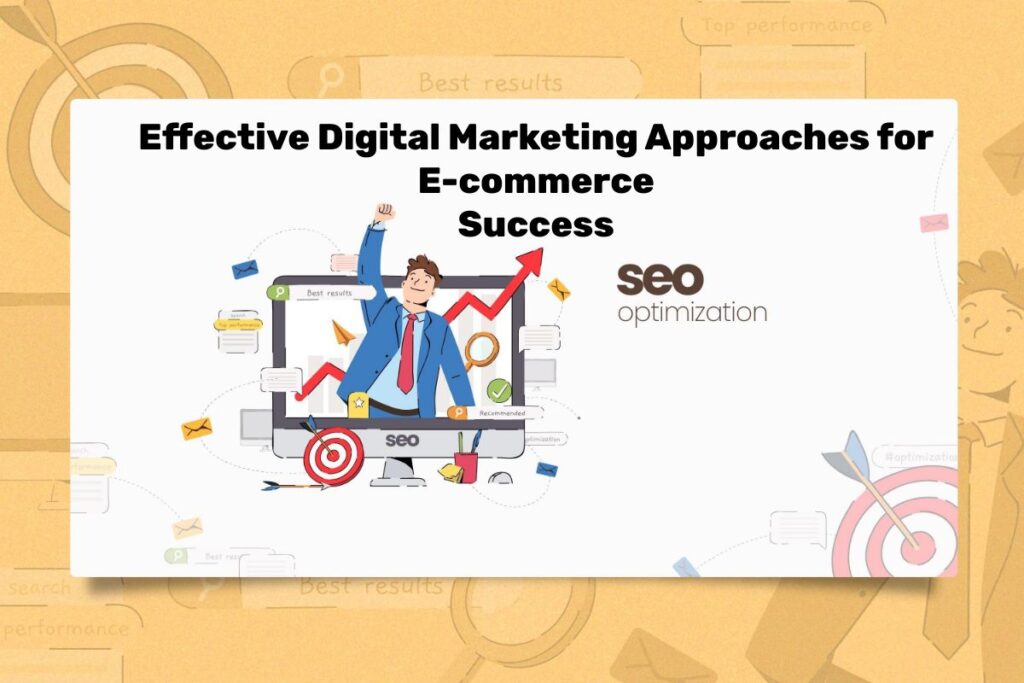What is E-Commerce?

Table of Contents
E-commerce, short for electronic commerce, represents the buying and selling of goods and services over the internet, reshaping commerce and consumer experiences worldwide. Its origins trace back to the 1990s, with a notable milestone being the first secure online transaction in 1994. Since then, pioneering platforms like Amazon and eBay have grown from modest marketplaces into dominant global entities. E-commerce operates across various models, including Business-to-Consumer (B2C), where businesses sell directly to individual shoppers, and Business-to-Business (B2B), facilitating transactions between companies. Consumer-to-Consumer (C2C) platforms enable individuals to trade items with each other, while Consumer-to-Business (C2B) allows consumers to offer services to businesses, as seen with freelance marketplaces.
Key components crucial to e-commerce success include user-friendly websites that serve as digital storefronts, secure payment gateways that protect sensitive data, efficient logistics to ensure timely delivery, and robust digital marketing strategies to attract and retain customers. Digital marketing techniques like search engine optimization (SEO) and personalized advertising play a pivotal role in driving traffic and boosting sales. The advantages of e-commerce are numerous and compelling: it offers unmatched convenience by allowing consumers to shop anytime, provides businesses access to a global customer base, reduces operational costs compared to brick-and-mortar stores, and leverages data analytics to deliver personalized shopping experiences.
Despite its impressive growth and benefits, e-commerce faces several challenges. Cybersecurity threats, such as data breaches and online fraud, remain persistent concerns that can erode consumer trust. The highly competitive nature of online markets demands constant innovation and superior customer service to stand out. Furthermore, earning and maintaining customer loyalty requires transparency, excellent user experiences, and reliable support.
Looking to the future, technological advancements like mobile commerce and artificial intelligence (AI) promise to further revolutionize the industry. Mobile shopping continues to rise, driven by the increasing prevalence of smartphones, while AI-powered tools enhance personalization, customer service, and inventory management. The integration of augmented reality (AR) into online shopping also offers immersive experiences, bridging the gap between physical and digital retail. As e-commerce evolves, its impact on global trade, consumer habits, and business models will deepen, creating new opportunities and challenges for businesses and shoppers alike. Ultimately, e-commerce remains a powerful force that continues to redefine commerce, making it more accessible, efficient, and dynamic than ever before.
Why Should You Rely on an eCommerce Specialist?
In the ever-evolving digital landscape, building a successful online business is far more complex than simply setting up a website. It demands strategic planning, expert knowledge, and continuous optimization—and that’s where an eCommerce specialist becomes invaluable. Imagine pouring your heart into creating an amazing product, only to find your sales stagnating due to poor website design, inefficient payment processes, or ineffective marketing. An eCommerce specialist understands the technical aspects of online commerce. They handle the creative components. They analyze data to boost your business’s success.
They streamline the user experience. This makes it intuitive and enjoyable for your customers. They also optimize your website for search engines. This ensures you’re visible to the right audience. Their expertise can transform your hard work into tangible profits, freeing you from trial-and-error approaches that waste time and resources.
Relying on an eCommerce specialist isn’t just a practical choice—it’s a strategic investment in your business’s future. Think of the competitive advantage you gain by leveraging cutting-edge tools, insights, and best practices that specialists bring to the table. These professionals stay ahead of trends, ensuring your business remains adaptable and future-proof. Beyond technical know-how, they bring an empathetic understanding of customer behaviors, preferences, and emotions.
They craft personalized experiences that resonate deeply with your target audience. By partnering with an eCommerce expert, you’re not just hiring a technician; you’re gaining a collaborator passionate about turning your vision into reality. Their commitment drives sales and enhances user trust. They optimize processes. This gives you confidence. You have the freedom to focus on what matters most—innovating, growing, and connecting with your customers. In a world where digital success depends on expertise, trusting an eCommerce specialist makes you competitive. It keeps you relevant. It prepares you to thrive.
What Is the Best Way to Hire an eCommerce Specialist for Your Online Store?

Hiring an eCommerce specialist for your online store is a crucial decision that can significantly impact your business’s success. Whether you’re just starting out or looking to optimize an existing online store, finding the right person to manage and enhance your eCommerce operations is key to growth. So, how do you choose the best fit? Here’s a guide to help you navigate the hiring process, ensuring you find someone who not only has the skills but also aligns with your business goals.
1. Understand What You Need
Before you begin the search, take a step back and assess your store’s current situation. What specific tasks do you need help with? Are you struggling with product listings, optimizing user experience, or managing marketing campaigns? Perhaps you need someone well-versed in eCommerce platforms like Shopify, WooCommerce, or Magento. Alternatively, you might need an expert who can handle everything from web design to customer support, SEO, and sales strategies.
Knowing exactly what you need will help you pinpoint the skills and expertise required for the role. It’s also important to identify whether you want a full-time specialist or if a part-time contractor or consultant would suit your needs better.
2. Look for Relevant Experience and Skills
The world of eCommerce is dynamic and constantly evolving, so you want a specialist who is not only experienced but also adaptable. Look for candidates with a proven track record of managing online stores, ideally within your industry or niche. This familiarity can shorten the learning curve and allow them to implement strategies quickly.
Key skills to look for include:
- eCommerce Platform Knowledge: Expertise in the platforms your store is built on.
- SEO and SEM: Ensuring your store ranks well in search engines.
- Conversion Rate Optimization (CRO): Ability to increase sales through strategic changes to the website.
- Product Management: Knowing how to manage inventory, product listings, and categories.
- Data Analysis: Being able to analyze sales data to make informed decisions.
3. Assess Their Problem-Solving and Creative Skills
While technical skills are essential, creativity and problem-solving are just as important. A good eCommerce specialist should be able to identify challenges within your store, such as high cart abandonment rates or poor customer engagement, and come up with innovative solutions. Their ability to think outside the box and offer creative approaches can make a big difference in improving your store’s performance.
Ask candidates for examples of past challenges they’ve overcome in previous roles and how they solved them. This will give you a better understanding of their problem-solving process and their ability to think critically under pressure.
4. Consider Their Communication and Collaboration Abilities
Your eCommerce specialist will likely work with a variety of teams, including marketing, design, customer service, and logistics. So, it’s important to find someone who communicates well and can collaborate effectively across different departments. Look for a candidate who listens to your ideas, offers clear explanations, and shares their vision for improving your online store.
eCommerce specialist Strong communication skills also mean they can explain complex technical terms in a way that’s understandable for non-tech team members, making them an invaluable asset to your business.
5. Look for Passion and Enthusiasm
Hiring someone passionate about eCommerce can be a game-changer for your store. Enthusiasm often translates to a genuine interest in helping your business grow. Ask about their motivations for wanting to work in the field and learn about their vision for the future of eCommerce. A specialist who genuinely enjoys the challenges and rewards of online retail will likely bring more energy and innovative ideas to the table.
6. Conduct a Thorough Interview and Test Their Skills
Once you have shortlisted candidates, conduct in-depth interviews to gauge both their technical expertise and cultural fit. You might also want to set up a small task or project related to your online store to test their practical skills. This will give you insight into their work style, efficiency, and attention to detail.
Hiring the right eCommerce specialist for your online store can transform your business, but it requires careful consideration. By knowing what you need, looking for relevant skills and experience, assessing problem-solving abilities, and considering their passion for the field, you can make an informed choice that will help your store thrive. With the right specialist by your side, your online business is poised for success.
What Are the Responsibilities of an eCommerce Specialist?
An eCommerce specialist plays a crucial role in managing and growing an online business. Their responsibilities encompass a variety of tasks that ensure smooth operations and drive sales. At the heart of their role is the management of an online store’s day-to-day activities. This includes overseeing product listings, ensuring accurate product descriptions, and maintaining up-to-date inventory.
They are responsible for analyzing customer behavior, tracking purchasing trends, and identifying opportunities for improving the user experience. This requires a deep understanding of the audience and the ability to interpret data to make informed decisions. The eCommerce specialist is also expected to optimize the website’s performance, from loading times to mobile responsiveness, ensuring a seamless shopping experience for users.
An essential aspect of their role is developing and implementing digital marketing strategies. This includes running campaigns through various channels like social media, email marketing, and paid advertisements. A successful eCommerce specialist must understand the balance between organic growth through SEO and the impact of paid strategies to drive traffic and conversions.
They also manage relationships with third-party vendors, ensuring smooth integration with payment gateways, shipping companies, and other partners. Additionally, eCommerce specialists are tasked with customer service, addressing complaints, feedback, and queries to ensure customer satisfaction and retention.
Above all, an eCommerce specialist needs to be adaptable and proactive. The digital landscape is constantly changing, and their ability to stay ahead of trends, evaluate new technologies, and respond to customer needs directly influences the success of an online business. Ultimately, this role is both technical and creative, requiring a blend of analytical skills and emotional intelligence to build strong customer relationships and foster business growth need eCommerce specialist.
What Should You Consider When Hiring an eCommerce Expert?
When hiring an eCommerce expert, it’s essential to go beyond just checking eCommerce specialist qualifications. You need someone who genuinely understands your business goals and can bring a human touch to your online store’s growth.
First, look for expertise in your specific niche. An eCommerce expert who has worked with businesses similar to yours will bring valuable insights. They’ll understand the challenges you face and the strategies that work best in your industry.
Next, communication is key. The right expert will listen attentively to your needs and be able to explain complex strategies in simple terms. You want someone who can build a strong working relationship and respond to your concerns with empathy and understanding. They should value transparency, keeping you informed every step of the way.
Experience with the latest tools and platforms is crucial. The world of eCommerce is fast-paced, and staying ahead of trends is vital for success. Ensure your potential expert is familiar with the most current technologies and can apply them to your business. From website optimization to digital marketing, they should be well-versed in integrating different platforms that enhance the user experience and increase sales.
Lastly, don’t overlook their problem-solving abilities. The eCommerce landscape is full of unexpected challenges, and your expert should be capable of thinking on their feet, adapting strategies, and overcoming obstacles with creativity and determination.
Hiring the right eCommerce expert isn’t just about finding someone with the right technical skills—it’s about connecting with someone who understands your vision and can help you achieve it with passion and precision. Choose wisely, as this partnership can make or break your business’s online success.
How Can an eCommerce Specialist Benefit Your Online Business?

Running an online business is more than just setting up a website and adding products to your virtual shelves. In today’s highly competitive digital marketplace, thriving requires strategic thinking, seamless user experience, and data-driven decisions. This is where an eCommerce specialist becomes invaluable. Here’s how they can transform your online business:
1. Optimized Store Performance
Imagine walking into a physical store where items are hard to find, checkout lines are long, and there’s no one to guide you. Frustrating, right? An eCommerce specialist ensures your online store is optimized for peak performance. They streamline navigation, reduce page load times, and simplify the checkout process — creating a seamless and enjoyable customer experience that boosts sales and reduces cart abandonment.
2. Tailored Marketing Strategies
A generic approach to digital marketing often falls flat. An eCommerce specialist crafts personalized marketing strategies that resonate with your target audience. From data-driven email campaigns and social media advertisements to persuasive content marketing, they help your business connect with customers on a deeper level, driving higher engagement and repeat purchases.
3. Expertise in SEO for Higher Visibility
Visibility is the lifeblood of online success, and search engine optimization (SEO) is its pulse. An eCommerce specialist enhances your website’s SEO by optimizing product listings, crafting keyword-rich descriptions, and integrating relevant backlinks. The result? Your store climbs search engine rankings, attracting more organic traffic and potential buyers.
4. Data Analysis for Smart Decision-Making
Gut instincts are good, but data-driven decisions are better. eCommerce specialists analyze performance metrics like conversion rates, customer behavior, and sales trends. This data-driven approach helps refine strategies, identify profitable opportunities, and avoid costly mistakes.
5. Scalable Growth Solutions
Growth can be as challenging as it is rewarding. An experienced eCommerce specialist helps you scale efficiently, ensuring your infrastructure, inventory management, and customer support keep pace with expanding demand. They implement automation tools and scalable solutions that future-proof your business.
An eCommerce specialist does more than manage your store — they unlock its full potential. With expertise in optimization, marketing, SEO, and data analysis, they provide the strategic edge your business needs to flourish. Investing in a professional can mean the difference between surviving in the digital marketplace and thriving with sustained growth and profitability so eCommerce specialist role is very important.
In a world where online businesses are growing exponentially, having the right guide by your side could be your smartest investment.
What Services Does an eCommerce Specialist Offer?
The rapid growth of online shopping has revolutionized the retail world, creating fierce competition among businesses striving to build a lasting digital presence. In this landscape, eCommerce specialists have become indispensable. But what exactly do they offer? Here’s a closer look at the comprehensive services that these professionals provide to boost online businesses. eCommerce specialist running e-Commerce store smoothly
1. Strategic Planning and Market Research
A successful eCommerce journey begins with meticulous planning. eCommerce specialists conduct detailed market research to understand customer behavior, industry trends, and competitive landscapes. They create tailored strategies to position your business effectively, helping you attract the right audience and stay ahead of competitors.
2. Website Design and Optimization
Your website is your digital storefront, and its appearance and functionality can make or break your sales. eCommerce specialists collaborate with web designers to create visually appealing, user-friendly websites. They also focus on search engine optimization (SEO) and site performance improvements to enhance loading speed, navigation, and overall user experience.
3. Product Listing Management
Creating and managing product listings is crucial for driving sales. eCommerce specialists ensure your product descriptions are persuasive, keyword-optimized, and accompanied by high-quality images. They also implement effective categorization, pricing strategies, and inventory management solutions to keep your listings competitive.
4. Marketing and Advertising
Driving traffic and conversions requires a solid marketing strategy. eCommerce specialists design and execute data-driven marketing campaigns using various channels, including social media, email marketing, and pay-per-click (PPC) advertising. They analyze campaign performance to continuously refine strategies, ensuring a positive return on investment (ROI).
5. Conversion Rate Optimization (CRO)
Even with substantial traffic, low conversion rates can hinder business growth. Specialists analyze customer behavior, A/B test website elements, and tweak designs or content to maximize conversions. From optimizing checkout processes to reducing cart abandonment, they fine-tune every aspect for a seamless purchasing experience.
6. Analytics and Performance Monitoring
Data is the backbone of eCommerce success so eCommerce specialist role is more important. Specialists use analytics tools to track key performance indicators (KPIs) such as sales trends, customer retention rates, and average order values. They interpret these insights to make data-informed decisions that continuously enhance your business.
An eCommerce specialist is more than a consultant; they are your strategic partner in navigating the complexities of online business. eCommerce specialist expertise transforms ideas into thriving digital ventures by combining technology, marketing, and customer-centric solutions. Investing in an experienced specialist can lead to exponential growth and a competitive edge in today’s dynamic marketplace.
Web Design and Development of eCommerce Websites
Designing and developing eCommerce websites is an intricate process that combines creativity, strategy, and technology to create a seamless shopping experience for users. At the heart of successful eCommerce design lies a deep understanding of customer behavior, preferences, and the need for convenience. Every element of the website — from the layout and navigation to the visuals and content — must work together to build trust and enhance usability.
A compelling eCommerce website begins with an intuitive user interface. Simple, clean navigation guides users effortlessly through product categories and checkout processes. Aesthetic appeal, combined with responsive design, ensures the site performs beautifully across devices, fostering accessibility and engagement. Meanwhile, product pages demand clear descriptions, vibrant images, and persuasive calls to action to influence buying decisions.
Behind the scenes, robust development is key to powering the site’s functionality. Secure payment gateways, fast-loading pages, and reliable hosting create a foundation of trust and efficiency. Integration with inventory management systems and analytics tools further empowers businesses to track performance and optimize operations.
Ultimately, an eCommerce website isn’t just a digital storefront — it’s a dynamic platform where user experience and business goals converge. A thoughtful, well-designed site not only drives sales but also nurtures long-term customer loyalty in today’s competitive online marketplace.
-
Product on sale
 Online Store (Medium Size Business)Original price was: ₹49,999.00.₹44,999.00Current price is: ₹44,999.00.
Online Store (Medium Size Business)Original price was: ₹49,999.00.₹44,999.00Current price is: ₹44,999.00. -
Product on sale
 Online StoreOriginal price was: ₹29,999.00.₹24,999.00Current price is: ₹24,999.00.
Online StoreOriginal price was: ₹29,999.00.₹24,999.00Current price is: ₹24,999.00.
Managing Products and Merchandising Strategies
1. Managing Products

Managing products involves the process of planning, developing, and overseeing a product’s journey from concept to market. It requires a clear understanding of customer needs, market trends, and competitive dynamics. Successful product management involves creating strategies that align with the business’s overall goals while delivering value to consumers. Product managers prioritize features, set product roadmaps, and coordinate between design, engineering, and marketing teams. By continuously analyzing customer feedback and performance metrics, businesses can refine their offerings to ensure products remain competitive and relevant. Effective product management also anticipates future needs, driving innovation to meet evolving market demands.
2. Merchandising Strategies
Merchandising strategies focus on the presentation and promotion of products to maximize sales and enhance customer experience. It encompasses everything from product selection and pricing to display tactics and promotional campaigns. A successful merchandising strategy begins with understanding the target market and curating products that meet their preferences. Visual merchandising, including layout and design, plays a critical role in attracting attention and encouraging purchases. Additionally, leveraging pricing strategies like discounts and bundling can boost customer engagement. Online and offline merchandising require tailored approaches, but both share the goal of optimizing product visibility and availability to drive profitability. Ultimately, effective merchandising connects the right products to the right customers at the right time, enhancing both sales and brand loyalty.
Effective Digital Marketing Approaches for E-commerce Success

In today’s fast-paced, ever-evolving digital landscape, businesses are increasingly relying on digital marketing strategies to fuel their e-commerce growth. While the fundamentals of marketing remain unchanged, the tools and channels through which brands engage with their customers have significantly transformed. So, how can e-commerce businesses ensure their digital marketing strategies stand out and drive real success?
1. Personalization is Key
One of the most impactful trends in digital marketing today is personalization. Consumers want to feel seen and understood by the brands they interact with. With vast amounts of data at their disposal, e-commerce businesses can tailor their offerings to match individual preferences. Whether it’s through product recommendations based on previous purchases or personalized email campaigns that speak directly to a customer’s needs, personalization fosters a sense of connection and encourages repeat business.
Emotionally, people are more likely to engage with a brand that feels like it ‘gets’ them, making personalization not just a strategy, but a bridge to building lasting relationships.
2. Leverage Social Media Platforms
In the age of connectivity, social media platforms like Instagram, Facebook, and TikTok have become indispensable tools for e-commerce marketing. These platforms provide a direct line to your target audience, allowing businesses to showcase their products creatively while building a brand identity that resonates with customers.
Using social media for e-commerce isn’t just about posting product photos; it’s about telling a story. Whether through behind-the-scenes looks at your operations or user-generated content that shows real people enjoying your product, these authentic touchpoints make the brand feel more relatable. Social media allows for direct interaction with customers, building a community around your products that goes beyond simple transactions.
3. Search Engine Optimization (SEO)
Search engine optimization (SEO) remains a cornerstone of any successful digital marketing strategy. When done right, SEO ensures your e-commerce website ranks higher on search engines like Google, making it easier for potential customers to find you. From optimizing product descriptions to improving page load speeds, there are numerous on-page SEO strategies that can boost visibility and drive more organic traffic.
But SEO isn’t just about rankings. It’s about user experience, too. A seamless website experience—combined with clear, engaging content—makes shopping feel less like a task and more like a pleasure. This emotional connection to your website can significantly influence purchasing decisions.
4. Paid Advertising and Retargeting
While organic reach is essential, paid advertising is still one of the most efficient ways to accelerate growth. Platforms like Google Ads, Facebook Ads, and even YouTube offer highly targeted ad placements that put your products in front of potential customers who are most likely to make a purchase.
Retargeting ads, in particular, are powerful. They remind users of products they’ve viewed but didn’t purchase, tapping into the feeling of “I really wanted that.” This sense of urgency, paired with well-crafted ad copy, can be the nudge a customer needs to complete their purchase.
5. Email Marketing for Retention
In a world saturated with promotions and ads, email marketing remains a trusted, personal way to communicate with your audience. Through effective email campaigns, businesses can maintain ongoing relationships with their customers by providing exclusive offers, updates, and reminders.
Emotionally, receiving a personalized email makes customers feel valued and appreciated, which builds loyalty and trust. After all, retaining a customer is far more cost-effective than acquiring a new one, making email marketing a vital piece of the puzzle in any e-commerce strategy.
Conclusion
Digital marketing for e-commerce success is not a one-size-fits-all approach. It requires a blend of creativity, data, and genuine customer understanding. By focusing on personalization, social media engagement, SEO, paid advertising, and email marketing, businesses can craft strategies that resonate emotionally with their audience. These strategies not only drive sales but also cultivate a deeper, more meaningful connection with customers, leading to long-term success. eCommerce specialist main part of E-Commerce store
FAQ – eCommerce Specialist
1. What is eCommerce?
E-commerce, also known as electronic commerce, involves the online buying and selling of products and services.
It started in the 1990s, with the first secure online transaction occurring in 1994. Today, platforms like Amazon and eBay dominate the space, offering various models such as Business-to-Consumer (B2C), Business-to-Business (B2B), Consumer-to-Consumer (C2C), and Consumer-to-Business (C2B), each with different transaction dynamics.
2. Why Should I Hire an eCommerce Specialist?
An eCommerce specialist can significantly improve your online business by optimizing technical, creative, and marketing elements. They ensure smooth user experiences, enhance SEO for better visibility, and streamline conversion strategies, ultimately boosting sales and reducing operational challenges.
3. How Do I Choose the Right eCommerce Specialist for My Online Store?
When hiring an eCommerce specialist, assess your business needs first. Look for candidates with experience in platforms like Shopify or WooCommerce, strong SEO and marketing skills, and a track record of driving conversions. Also, ensure they are adaptable, creative, and a good communicator who aligns with your business vision.
4. What Are the Responsibilities of an eCommerce Specialist?
An eCommerce specialist handles a variety of tasks including managing product listings, optimizing website performance, running marketing campaigns, and analyzing sales data. They also manage third-party integrations, customer service, and ensure the overall seamless operation of your online store.
5. What Should I Consider When Hiring an eCommerce Expert?
When hiring an eCommerce expert, consider their experience with your specific industry and their ability to understand your business goals. Strong communication, expertise with the latest tools and platforms, and a strategic mindset are key qualities to look for in a candidate.
6. How Can an eCommerce Specialist Benefit My Online Business?
An eCommerce specialist can optimize your website’s performance, implement tailored marketing strategies, improve SEO rankings, provide data-driven insights, and develop scalable growth solutions. Their expertise helps drive more traffic, increase conversions, and enhance customer retention.
7. What Services Does an eCommerce Specialist Offer?
eCommerce specialists provide a range of services including market research, website design and optimization, product listing management, digital marketing campaigns, conversion rate optimization, and performance analytics. Their goal is to help you grow and sustain a competitive online business.
8. What is Involved in Designing and Developing eCommerce Websites?
Designing eCommerce websites involves creating intuitive layouts, optimizing user experience, and ensuring mobile responsiveness. Development includes integrating secure payment gateways, fast loading times, and reliable hosting. The goal is to offer a seamless and efficient shopping experience while ensuring robust backend performance.
9. How Can Digital Marketing Improve eCommerce Success?
Effective digital marketing in eCommerce includes strategies like personalization, leveraging social media platforms, optimizing for SEO, paid advertising, and email marketing. These strategies help businesses build stronger relationships with customers, increase traffic, and boost sales.
10. What is the Role of Merchandising in eCommerce?
Merchandising in eCommerce focuses on presenting products in a way that maximizes sales. It includes effective product categorization, pricing strategies, and promotional campaigns. Visual merchandising and strategic product placement are critical to capturing customer interest and driving purchases.

